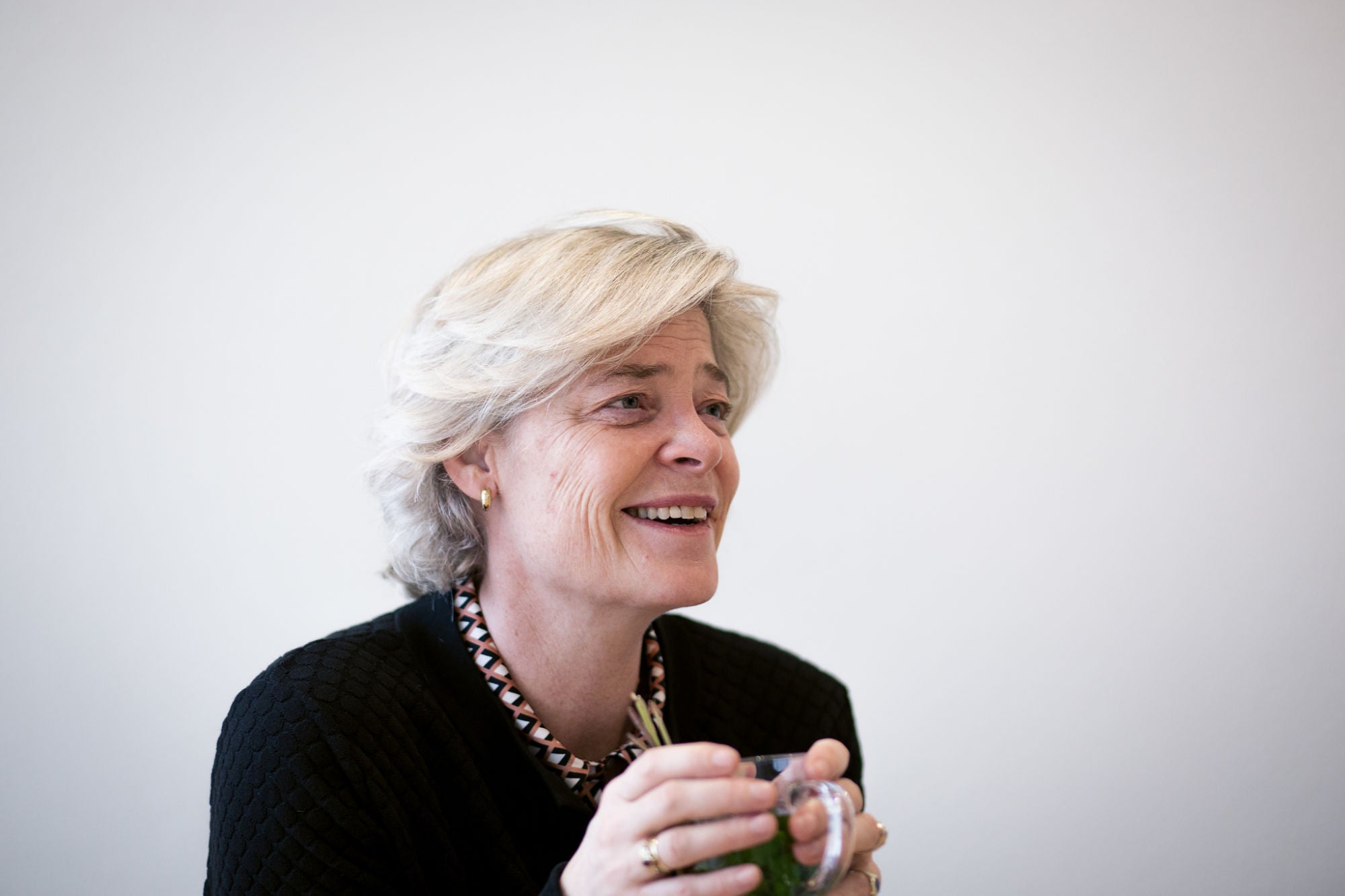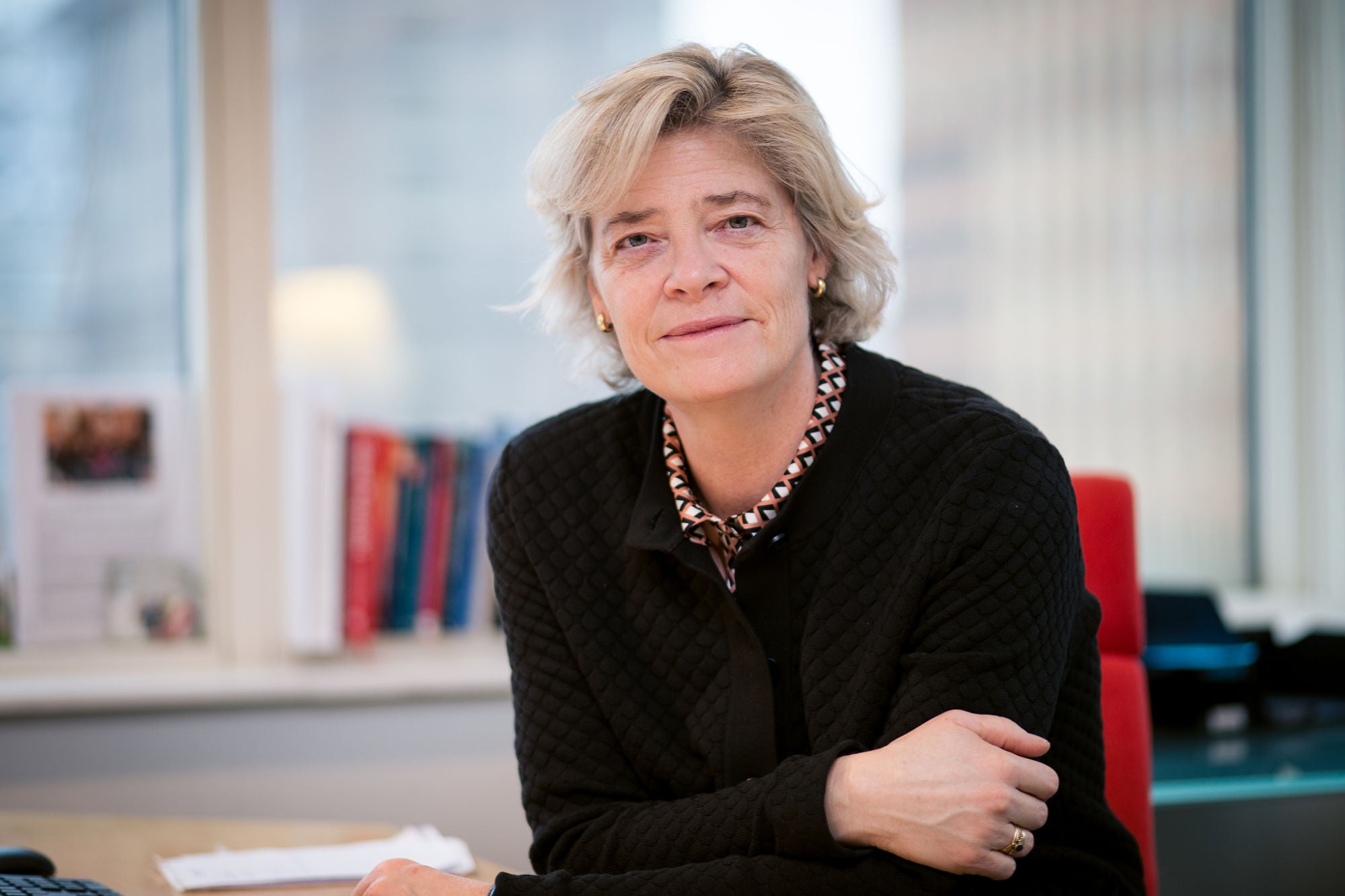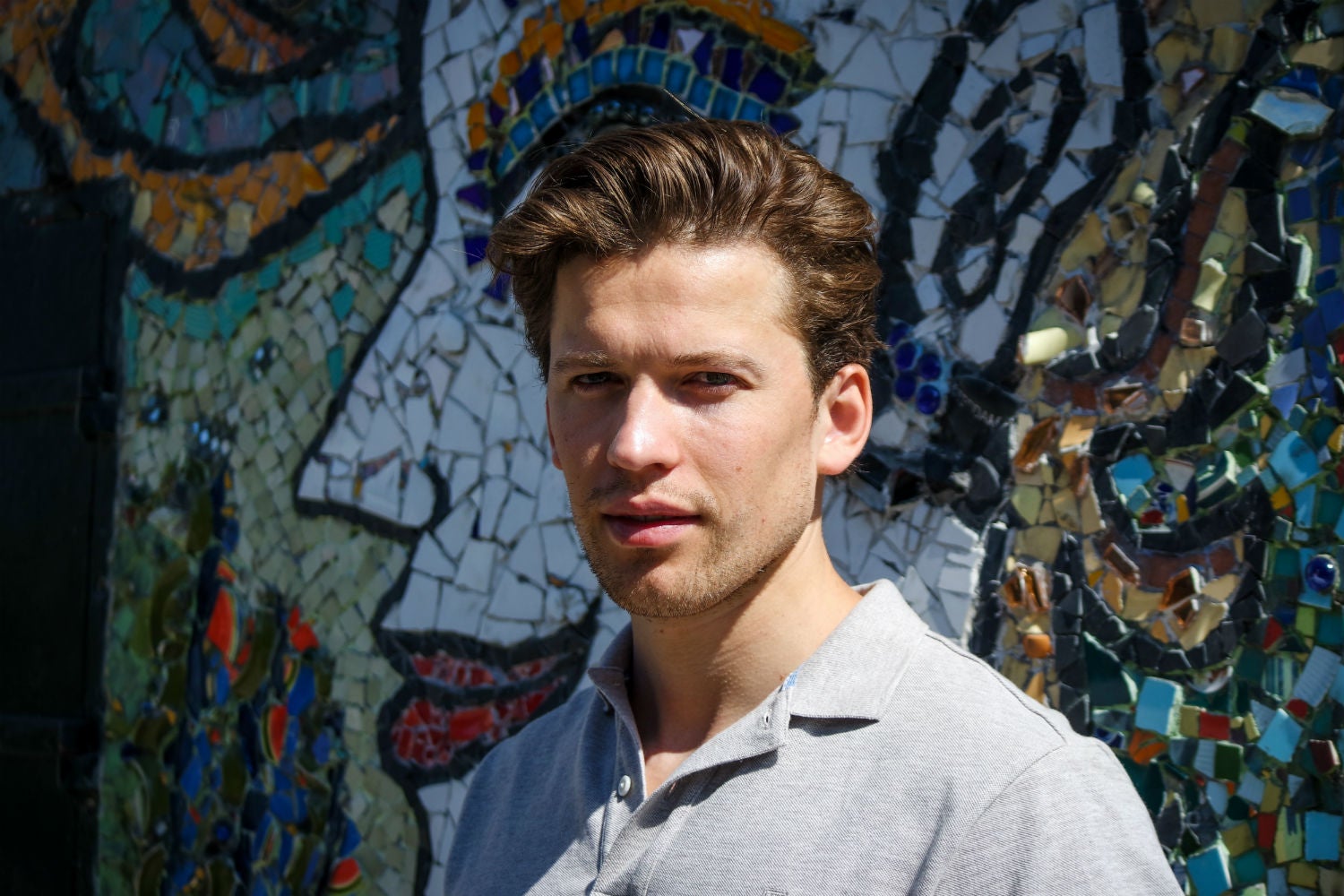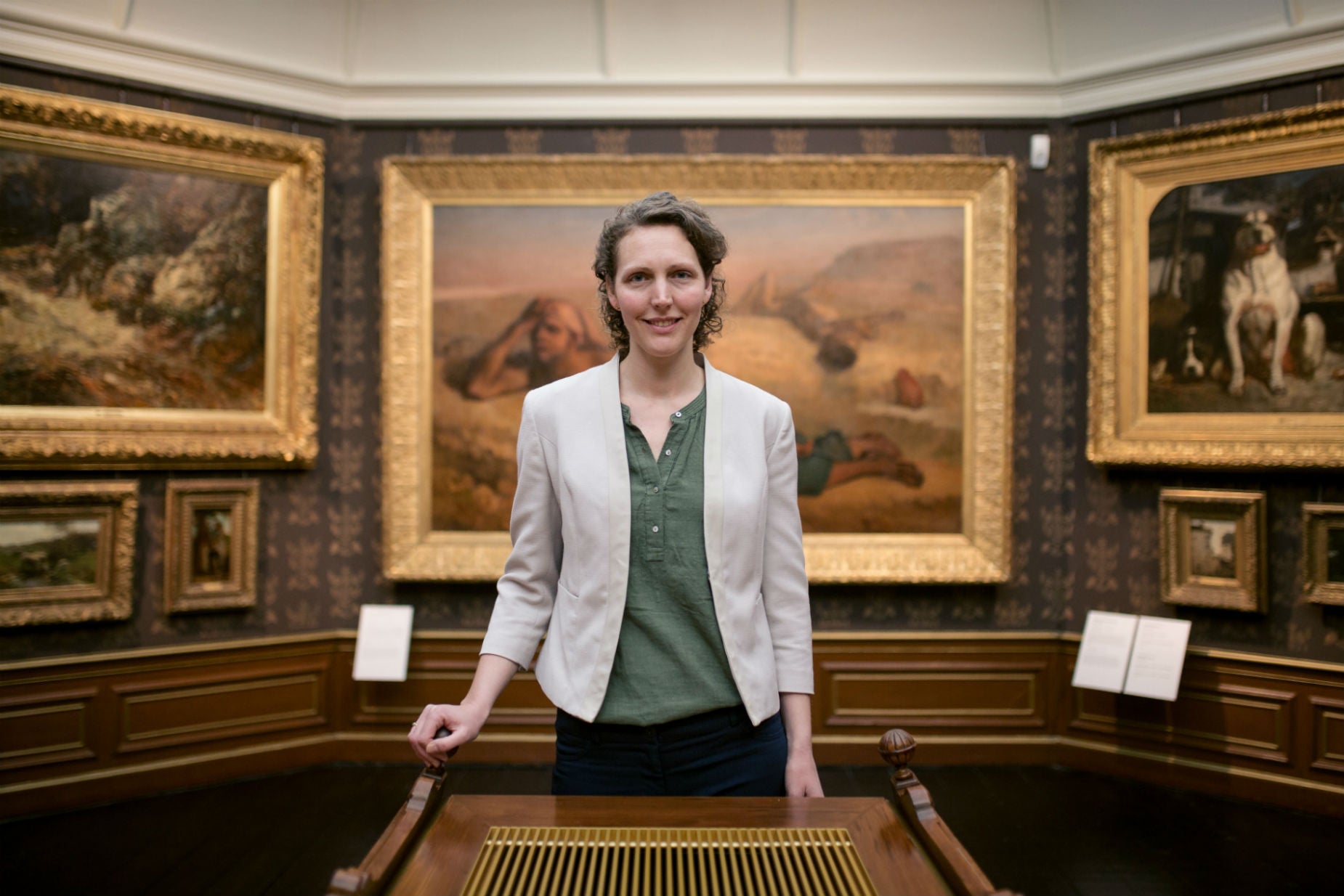Marry de Gaay Fortman is a partner at Houthoff, has been named one of the most influential Dutch people several times and recently wrote the book ‘Verdrink geen dooie eend’ (Don’t drown a dead duck), about life at the top. From the top floor of an impressive office building in the Zuidas, she overlooks the entire city.
Why did you decide to study law?
“Actually, I wanted to be a police officer. I hated injustice and wanted to play an active role in combatting it. The fourth year of secondary school, I did an internship at the Public Prosecutor’s Office, but after encountering the huge stacks of violent criminal cases, I dropped out completely. It was too much for me, which isn’t ideal in a job like that. That’s why I opted for law. It ended up being a good decision, because I’ve been a lawyer for 30 years now but still enjoy my work every day. I still have to deal with criminal law, but more from a financial perspective.”
Did you ever consider any universities other than the VU?
“Ha ha, yes, of course. But my family has been linked to the VU for generations, so it was the most obvious choice. My grandfather was a professor there, but he was also the rector of the University. I did, however, want to be independent, so I did choose my own student association (SSRA).”
How did you career start after you graduated?
“When I was 22, I graduated in both Civil Law and Constitutional and Administrative Law. I heard that they were looking for someone at Houthoff, was offered the job, and never left. It was quite exciting in the early days, because I was still very young. I can remember working on two cases at the same time and struggling to tell the two apart. I can’t imagine that now. The firm has grown enormously since I first started; from 45 lawyers back then to more than 300 lawyers today.”

Why did you decide to work on public-private regulatory matters?
“I was brought up with politics. My father was a professor and spent a large part of his life as a politician, and my grandfather was both a professor and a minister. In my work, I also deal with political issues, such as research questions, advising on proposed legislation, regulatory aspects of supervisory authorities and corporate governance. The Vestia case is a good example; I’ve spent the last five years working with this major housing cooperative to settle its derivatives portfolio, which has various highly complex regulatory aspects. I enjoy tackling complex, socially relevant problems and solving them, preferably without resorting to legal proceedings.”
Do you remember any of your first cases?
“One of my first cases was for the Salvation Army. They believed that a night shelter should be opened for the homeless in Amsterdam’s Red Light District, but the locals, and local business owners in particular, didn’t agree. They were afraid it would cause trouble. Emotions ran high and I was pelted with tomatoes during the hearing. It was difficult to deal with, I remember.”
In your book ‘Verdrink geen dooie eend’(Don’t drown a dead duck), you wanted to show what the world of business is like at the very top. Why?
“One of the reasons is that I’m very worried about the business world, especially about professionalism, integrity and credibility in decision-making. Take, for instance, ING and wage increases at the very top. Society made clear that it won’t just automatically accept decisions, and you have to be able to provide an explanation. Sometimes, companies fail to do so. I also believe we need more diversity. You simply can’t neglect all the female talent in the Netherlands. Fortunately, it’s now not done to appoint only men to the Executive Board, Supervisory Board or panels, but we still have a long way to go.
Have you been treated differently because you’re a women?
“Back in the day, when I was interviewing with one of the partners about my potential partnership, he carefully asked me how many more children I’d like to have. It really caught me by surprise. I thought that I’d be asked about my knowledge and skills as a lawyer, but that wasn’t the case, so I asked him how many more children he thought he'd have. The conversation quickly took a different turn. Still, though, I notice that when a man disagrees with me on important decisions, matters can sometimes get quite personal. They may play the ‘woman’ card and dismiss me as being overly emotional. Luckily, I don’t fall for that anymore and can only laugh. I really won’t let anyone shut me up.”
One of your tips for women is: ‘Be good and tell it’. Do you have any more?
“One of the most important tips I can give is that women shouldn’t be too modest. Not even in job interviews. I know from experience that in a job interview, men want to hear why they should trust you with a certain position. Women tend to ask a lot of questions, because they may have not quite figured everything out yet, but your main goal in a job interview is to show that you’re qualified, so it’s not the best time to ask those questions. On the one hand, men should be able to see through this, but I would still recommend that women keep such considerations out of the interview. You don’t have to boast and claim you’re the best, but you should mention everything you have to offer.”









